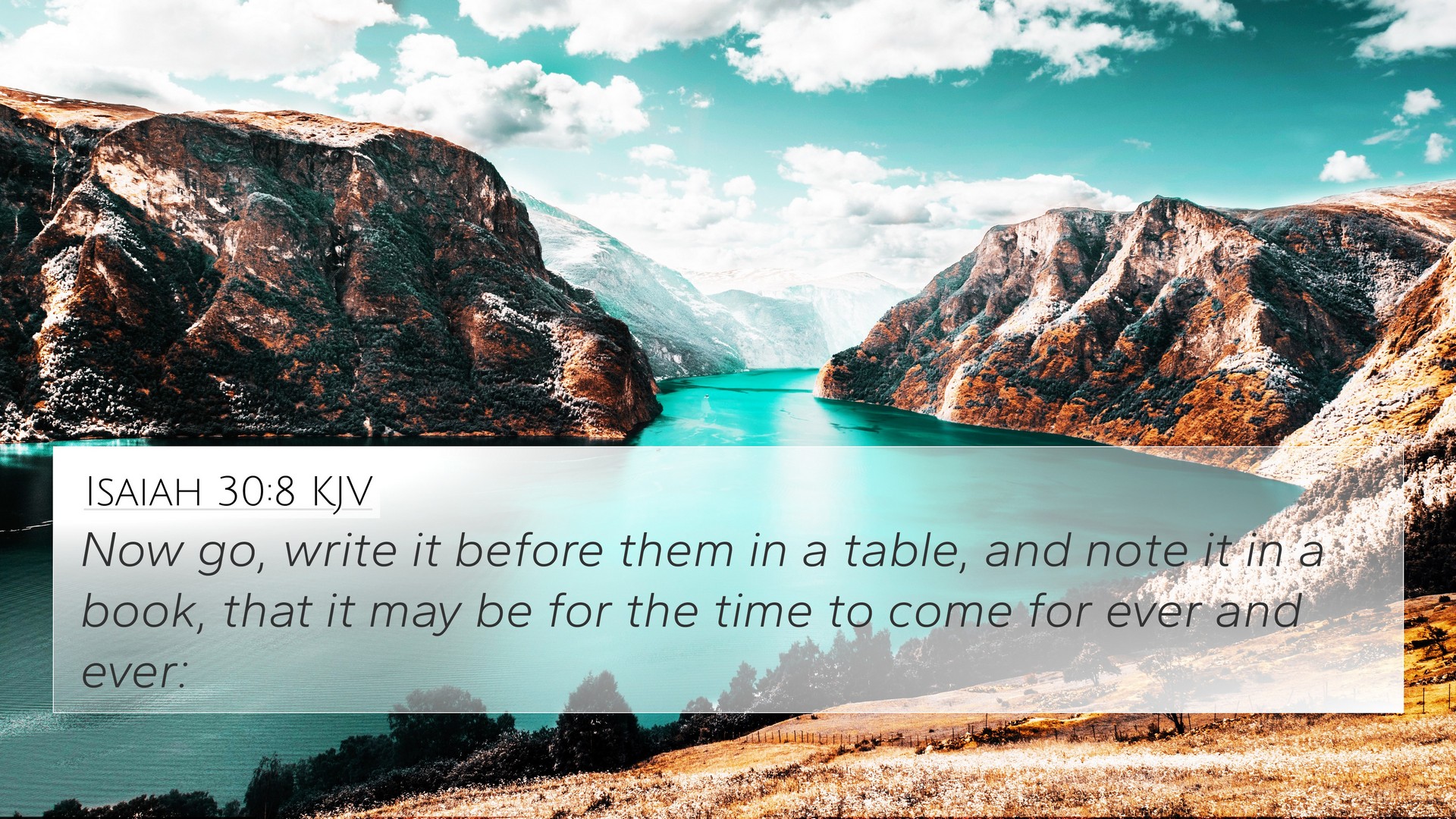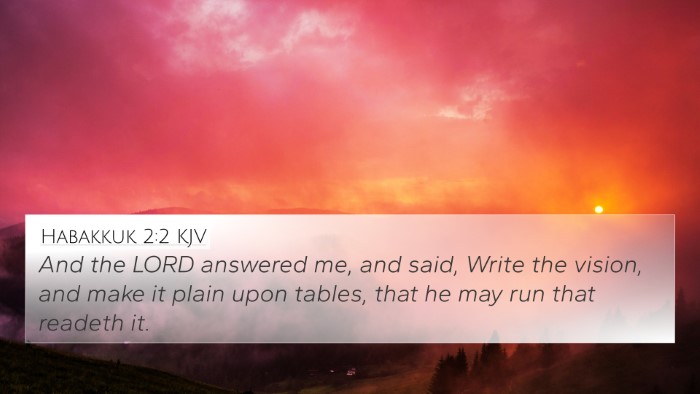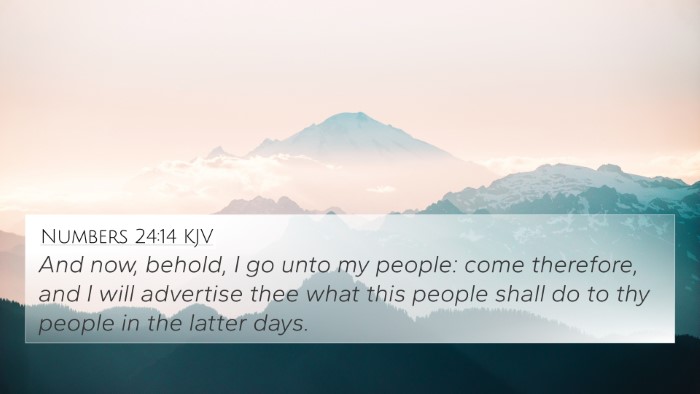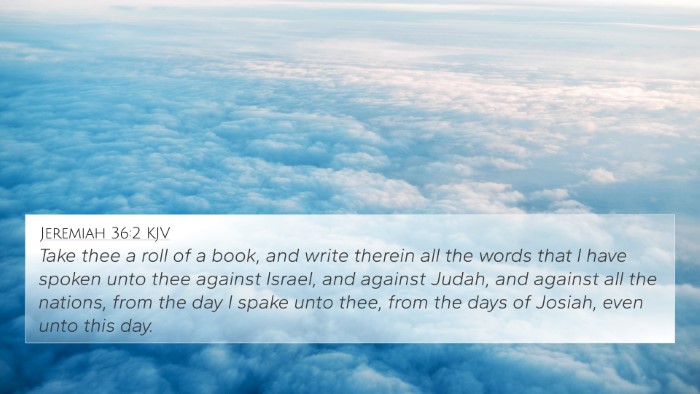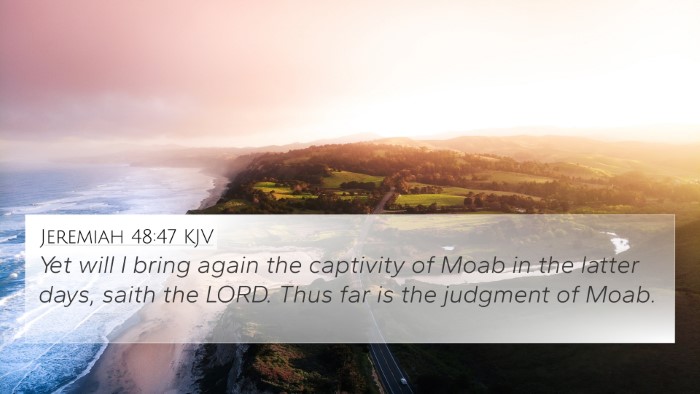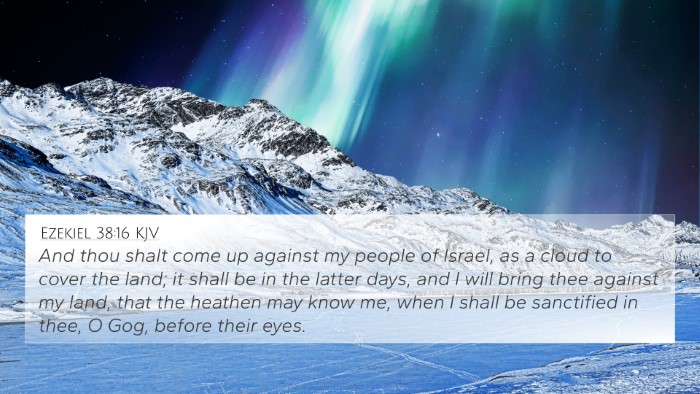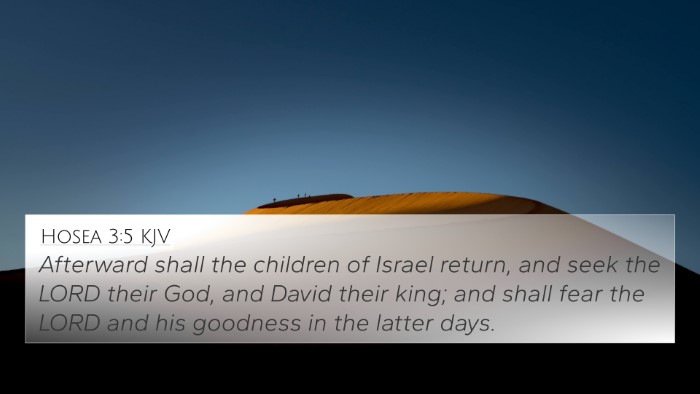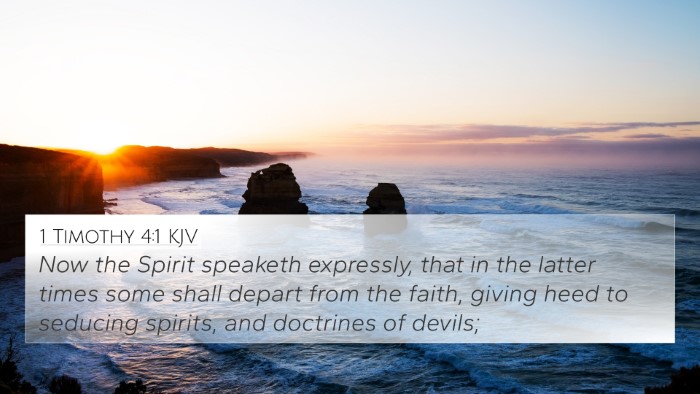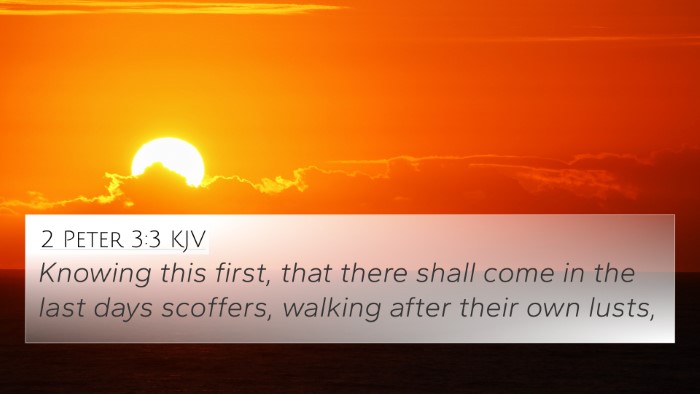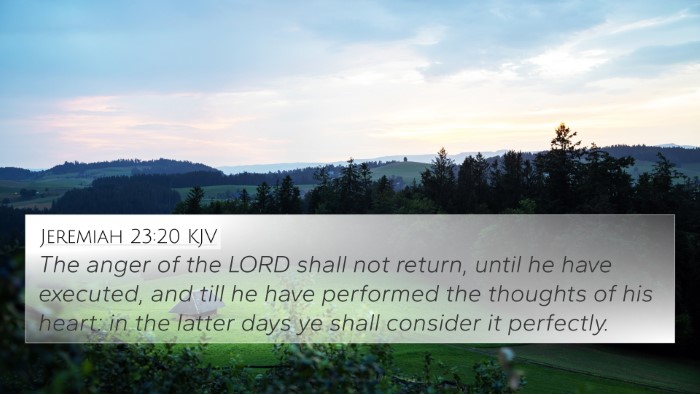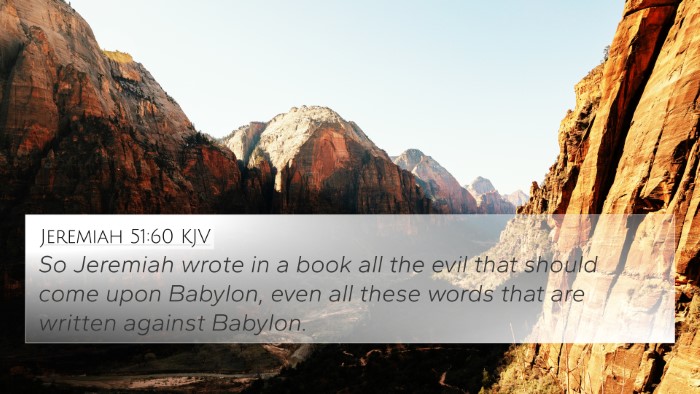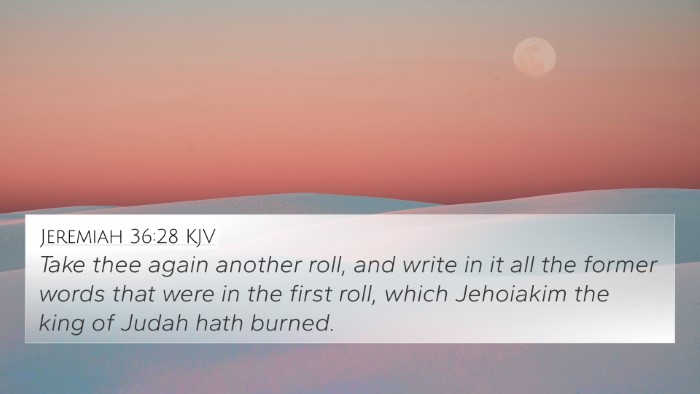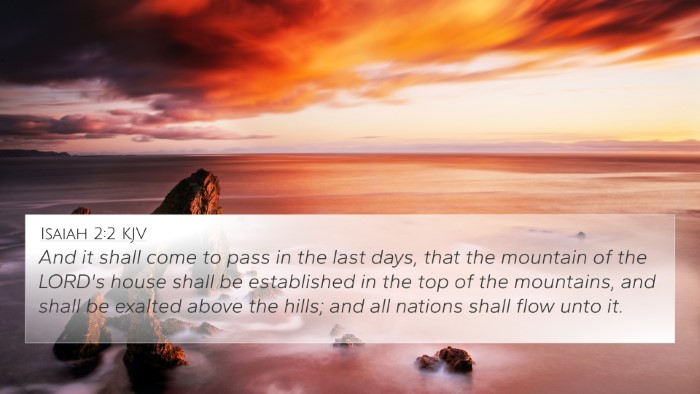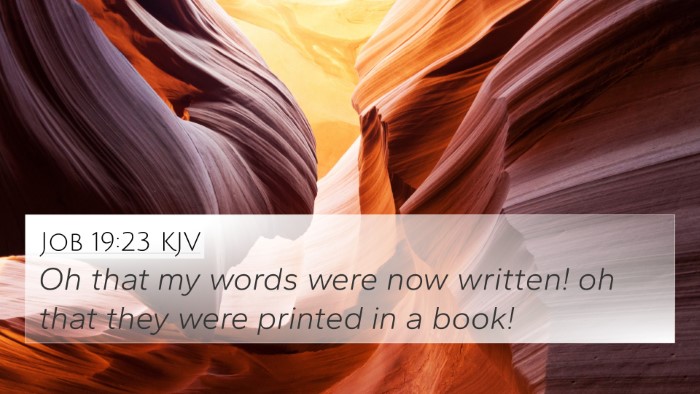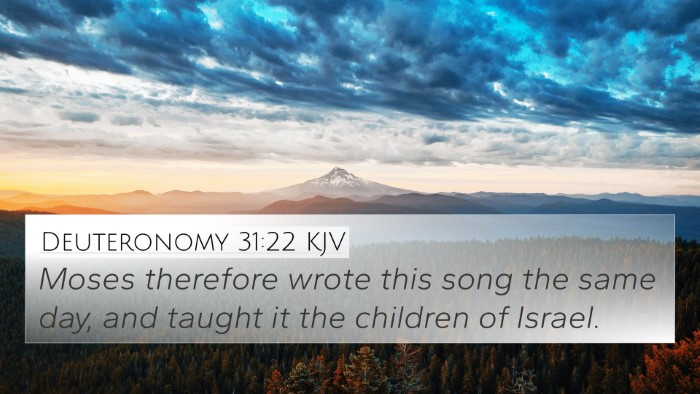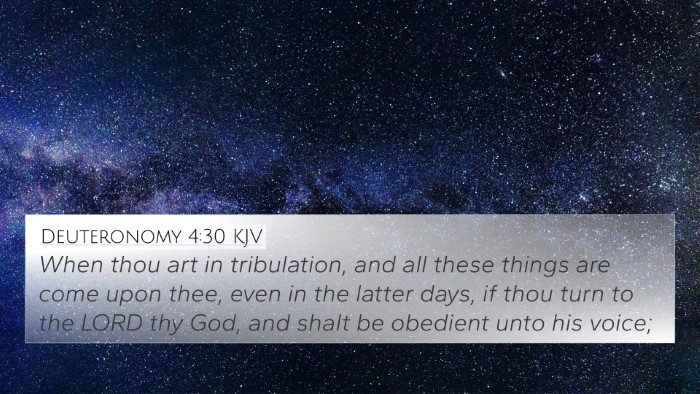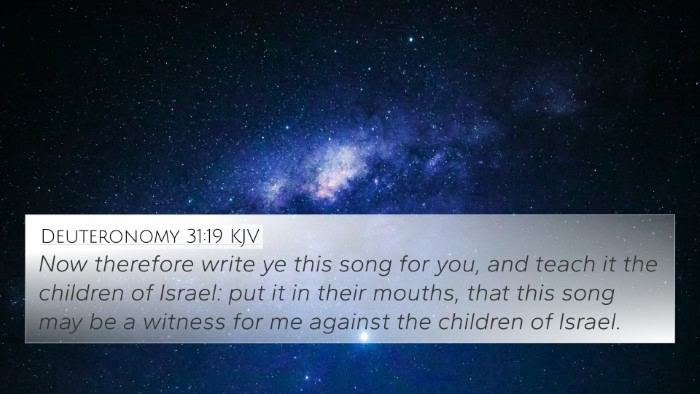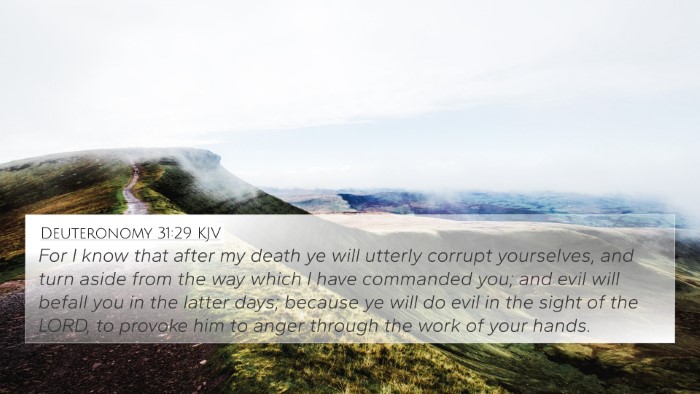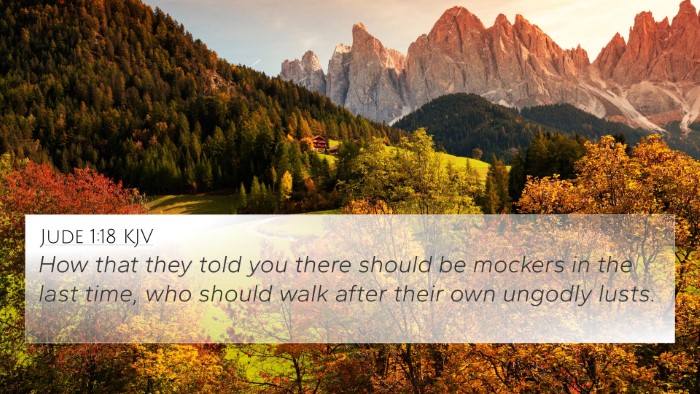Understanding Isaiah 30:8
The verse Isaiah 30:8 from the Bible asserts the importance of written records, emphasizing the necessity of preserving God's message and understanding its implications. This verse serves as a cornerstone for thematic explorations in scripture and assists in establishing connections between various Biblical texts.
Verse Content
Isaiah 30:8: “Now go, write it before them on a tablet, and note it on a scroll, that it may be for the time to come, forever and ever.”
Commentary Insights
Matthew Henry's Commentary: He explains that God commanded the prophet Isaiah to write down His words to ensure that they would be remembered by future generations. The significance lies in the necessity of written revelation as a means to preserve divine truth, and to guard against the forgetfulness and corruption of human nature.
Albert Barnes' Notes: Barnes notes that the act of writing serves as a testimony against those who refuse to heed God's warnings. The preservation of this message on a scroll symbolizes the importance of obedience to God's commands. This serves as an encouragement to believers, reminding them of the necessity of maintaining scripture in their lives.
Adam Clarke's Commentary: Clarke highlights the dual purpose of writing this message: to provide a witness to the present generation and a reminder for future generations. He also underscores the permanence of God’s messages in contrast to human transience, suggesting that the written word is an enduring reflection of God's faithfulness.
Thematic Connections
Isaiah 30:8 can be linked to the broader theme of God's written word across the Bible. Here are several cross-references:
- Exodus 17:14: God commands Moses to write down what has happened, reflecting the importance of documenting divine interventions.
- Deuteronomy 31:19: Moses is instructed to write a song as a witness to the Israelites, emphasizing the necessity of reminder through writing.
- Psalm 102:18: This verse addresses the idea of writing to make known the name of the Lord to a future generation.
- Jeremiah 30:2: God instructs Jeremiah to write all the words given to him, reinforcing the theme of divine communication through scripture.
- Habakkuk 2:2: The prophet is told to write the vision clearly, so that it may be easily read, showcasing the clarity needed in God's messages.
- Revelation 1:11: John is commanded to write what he sees, linking the act of writing with prophetic revelation.
- Revelation 21:5: The promise of all things being made new, with instructions to write these truths signifies the ongoing relevance of written scripture.
- Acts 1:8: The command to be witnesses suggests the importance of sharing and recording testimonies which parallels the directive in Isaiah 30.
- Matthew 5:18: Christ emphasizes that not a single letter of the law will pass away, highlighting the critical nature of the written word.
- 2 Timothy 3:16-17: The affirmation that all scripture is God-breathed demonstrates the significant role of writing in divine revelation.
Implications for Modern Believers
For contemporary readers, Isaiah 30:8 serves as a call to value the written word of God and recognize its transformative potential. This verse reminds believers to engage deeply with scripture, as it is not only a testimony of faith but a living document that informs and guides life decisions.
Integration with Cross-Referencing Tools
The insights derived from Isaiah 30:8 emphasize the significance of using Bible cross-reference guides. By employing these tools, one can explore the connections between Bible verses, uncovering rich thematic Bible verse parallels, and appreciate the inter-Biblical dialogue that exists within the scriptures. Such practices enhance understanding and deepen faith.
Conclusion
In summary, Isaiah 30:8 highlights the importance of writing down the revelations from God, serving as a reminder for us to record and revisit our spiritual journeys. As we explore the Bible verse cross-references related to this passage, we can appreciate the way the scriptures continually reinforce and illuminate one another.
